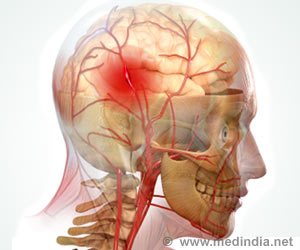The results of J-STARS study led to the hypothesis that statins reduce the occurrence of strokes due to larger artery atherosclerosis.

‘Pravastatin, a traditional statin, was observed to reduce the recurrence of strokes in non-cardioembolic stroke patients. These results can contribute to the establishment of guidelines for using statins to prevent strokes caused by larger artery atherosclerosis.’





J-STARS is a multicenter, randomized, open-label, blinded-endpoint, parallel-group study of patients who experienced a non-cardioembolic ischemic stroke. In total, 1578 patients were recruited and randomly assigned to either the pravastatin group or the control group. During a follow-up of about five years, the incidence of recurrent strokes was about 2.6%/year in both groups. The onset of atherothrombotic infarction, a stroke subtype, was clearly less frequent in the pravastatin group, whereas no significant difference was found for other stroke subtypes. No significant difference was found between the two groups in terms of the occurrence of adverse effects, which included cancer and laboratory examinations.
Professor Masayasu Matsumoto, a J-STARS principal investigator at Hiroshima University said, "The pravastatin dose used in this study is lower than that used in studies from Western countries, but it is the approved standard dose in Japan. Stroke is a heterogeneous disease with different etiologies with or without underlying arterial pathologies. Thus, the benefits of statin may be different depending on the subtypes of the stroke."
The majority of previous studies defined stroke as a whole with no distinction between subtypes. Moreover, current international guidelines uniformly recommend the use of statin for secondary stroke prevention.
Professor Matsumoto said, "Further studies are required to determine whether such guidelines are applicable for Asians. Although the current study has certain limitations, J-STARS can contribute to the establishment of guidelines for using statins to prevent strokes caused by larger artery atherosclerosis."
Advertisement














